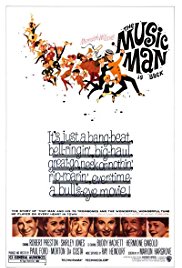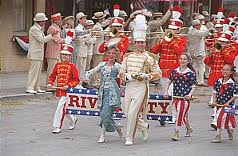QUICK DISCUSSION QUESTION:
Does Professor Hill find love and dishonesty to be compatible with each other?
Suggested Response:
No. Love requires meaningful communication which cannot exist in an atmosphere of deceit.
1. See Discussion Questions for Use With any Film that is a Work of Fiction.
2. What benefit did Professor Hill bring to River City?
3. Why did Professor Hill have to get out of the business of selling steam automobiles?
4. Why did Professor Hill say he was going wherever the people were as green as the money?
5. What did the librarian mean when she said that Professor Hill had the whole town “mesmerized?” Who was Dr. Mesmer?
Suggested Response:
Mesmer was an early practitioner of hypnotism.
6. What is the perfect pitch?
7. What is a lisp? Why did the little girl, Amaryllis, laugh at the little boy when he tried to say her name? Was that the right thing to do?
8. What does this movie have in common with the fairy tale of “The Emperor’s New Clothes?”
9. What was Professor Hill doing in the song “You Got Trouble”?



